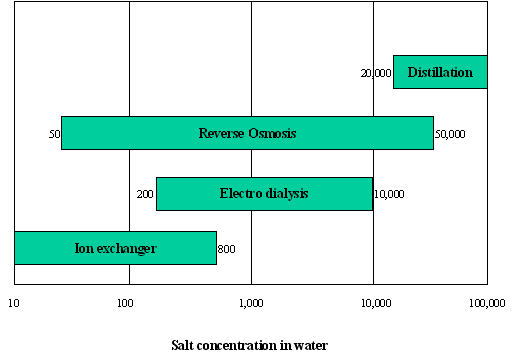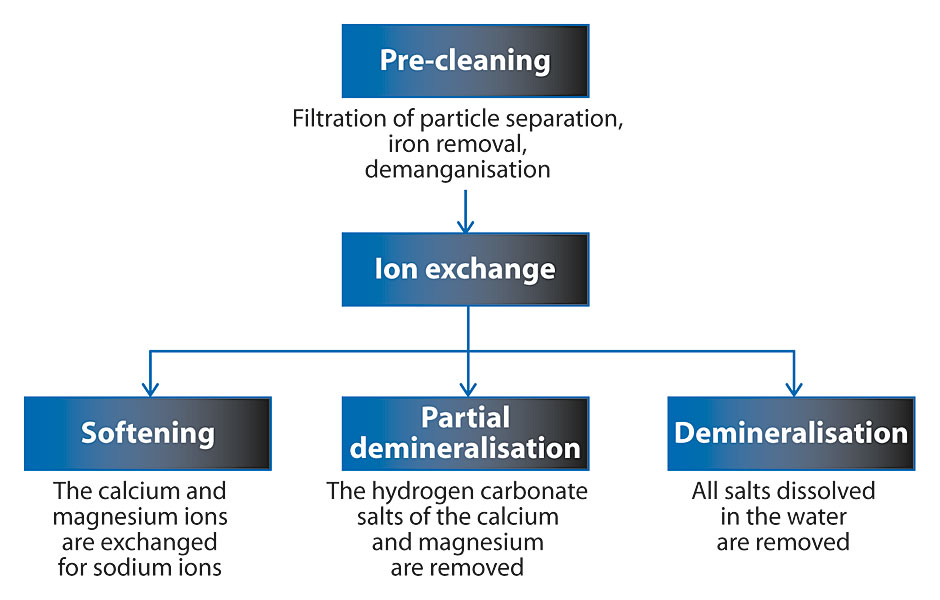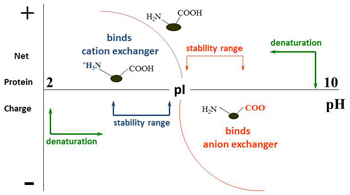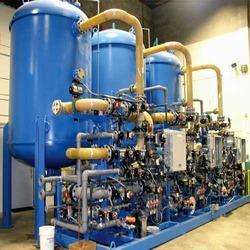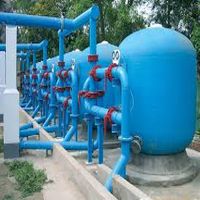It looks like you're using an Ad Blocker.
Please white-list or disable AboveTopSecret.com in your ad-blocking tool.
Thank you.
Some features of ATS will be disabled while you continue to use an ad-blocker.
share:
originally posted by: supermilkman
a reply to: supermilkman
Then again the Navy already uses desalinization. A lot of this isn't really a big problem I guess.
Just really expensive. Like in ME countries for instance, they have built huge de salinization factories to purify sea water, at enormous cost. They are water short but also oil rich so they can afford it.
Average American city isn't going to afford that.
We're stuck with increasingly polluted sources, the pollution is building. All the processes you are referring to can be replaced by simple distillation. Only distillation removes the most of trace elements. They have also made this alternative expensive. They rather we buy water in little bottles made from plastic, made from oil.
The blow up in Flint, Michigan about lead in the water was disingenuous, lead is in water everywhere. Now they are fracking, using petrochemical fertilizers, pesticides, nuclear power, mining, all of which produce waste runoff into the water shed and aquifers.
Drink distilled water...
durastill
originally posted by: ketsuko
Do you know why they speculate that so many are now exhibiting allergies and autoimmune disorders?
It's because so many are obsessed with sterilizing everything. Our immune systems are designed to encounters a certain number of bacteria and viruses in our lifetime and when our immune systems are not challenged, the risk is there for them to start misfiring and attacking us instead because they aren't trained properly.
Now, no one is advocating that we allow serious disease organisms into our water supply, but having your immune system encounter a few bugs here and there is actually good for you. Trust me. I am married to a microbiologist and you pick up a few things.
Yes, our bodies build immunities to such things with exposure. However there is a fine line. Our current food and water supply is beyond unsafe. Go look inside the sewer to see what I mean.
a reply to: ketsuko
And there are other sides to your argument that our very immuno-deficiency disorders is directly linked to the harmful chemicals in our eco-system rather than not building enough immunity to them.
And there are other sides to your argument that our very immuno-deficiency disorders is directly linked to the harmful chemicals in our eco-system rather than not building enough immunity to them.
edit on 8-1-2017 by supermilkman because: (no reason given)
originally posted by: intrptr
originally posted by: supermilkman
a reply to: supermilkman
Then again the Navy already uses desalinization. A lot of this isn't really a big problem I guess.
Just really expensive. Like in ME countries for instance, they have built huge de salinization factories to purify sea water, at enormous cost. They are water short but also oil rich so they can afford it.
Average American city isn't going to afford that.
We're stuck with increasingly polluted sources, the pollution is building. All the processes you are referring to can be replaced by simple distillation. Only distillation removes the most of trace elements. They have also made this alternative expensive. They rather we buy water in little bottles made from plastic, made from oil.
The blow up in Flint, Michigan about lead in the water was disingenuous, lead is in water everywhere. Now they are fracking, using petrochemical fertilizers, pesticides, nuclear power, mining, all of which produce waste runoff into the water shed and aquifers.
Drink distilled water...
durastill
I don't think there was any hidden agenda with Flint Michigan. Something bad happened with their city planning so they started drinking water straight from their river bed. This actually got people even more sick.
Lead-based poisoning is still an actual issue.
Roman architect Vitruvius knew a long time ago using lead for aquaducts gave people laborer's illness. He recommended clay and masonry passages.
I still think a new currency is the only solution to actually fix our economy and start over with a new budget. Like you said much of the cities are extremely polluted and dangerous.
Nanofiltration, EDI, and reverse osmosis systems sound like the best way to purify our water. Algae can then be used to purify human waste water.
Much of our current water supply used for eating and drinking is actually recycled water. They just don't tell you this because it would gross everyone out knowing that you're actually consuming waste water.
edit on 8-1-2017 by supermilkman because: (no reason
given)
edit on 8-1-2017 by supermilkman because: (no reason given)
edit on 8-1-2017 by supermilkman because: (no
reason given)
a reply to: supermilkman
Distilling is more effective. Its the trace elements (like heavy metals) in trace amounts that get thru, only distilling removes the most of these. Read that link I provided.
Filter manufacturers want to sell you filters just like bottling companies want to sell you bottled water that has been 'treated'.
Not only but city water pipes in many places are corroded, leaking, making water more polluted on the trip to your house. The only way to guarantee the clearest water is to refine it just before drinking or cooking with it, by distillation.
Nanofiltration, EDI, and reverse osmosis systems sound like the best way to purify our water.
Distilling is more effective. Its the trace elements (like heavy metals) in trace amounts that get thru, only distilling removes the most of these. Read that link I provided.
Filter manufacturers want to sell you filters just like bottling companies want to sell you bottled water that has been 'treated'.
Much of our current water supply used for eating and drinking is actually recycled water. They just don't tell you this because it would gross everyone out knowing that you're actually consuming waste water.
Not only but city water pipes in many places are corroded, leaking, making water more polluted on the trip to your house. The only way to guarantee the clearest water is to refine it just before drinking or cooking with it, by distillation.
originally posted by: intrptr
a reply to: supermilkman
Nanofiltration, EDI, and reverse osmosis systems sound like the best way to purify our water.
Distilling is more effective. Its the trace elements (like heavy metals) in trace amounts that get thru, only distilling removes the most of these. Read that link I provided.
Filter manufacturers want to sell you filters just like bottling companies want to sell you bottled water that has been 'treated'.
Much of our current water supply used for eating and drinking is actually recycled water. They just don't tell you this because it would gross everyone out knowing that you're actually consuming waste water.
Not only but city water pipes in many places are corroded, leaking, making water more polluted on the trip to your house. The only way to guarantee the clearest water is to refine it just before drinking or cooking with it, by distillation.
You might be right with distillation. It boils water to seperate contaminants. I think distillation along with the aforementioned EDI and reverse osmosis systems would make an even purer water.
originally posted by: supermilkman
a reply to: intrptr
So this is probably the best process to purify water. Ion exchange system should be the final step in purifying water.
Ionization being the purest water, yes. More expensive, the difference between that and simple distillation by evaporation isn't worth the cost difference.
Plus stills are easily made, moonshiners do it all the time. In a pinch one can distill in empty plastic water bottles. Theres survival stills the airforce teaches pilots that are just pits in the ground, too.
originally posted by: supermilkman
a reply to: intrptr
According to the graph I posted distillation leaves a salt concentration of 20,000 to 100,000 ppm. Distillation may not be good as the other processes.
Leaves that much salt behind.
a reply to: supermilkman
You're missing the point. The salts are left behind in the evaporator, no longer in the distilled water.
Yah its crusty, better to encrust the inside of the still than your innards.
Exactly, there is more salt content after distillation than there would be in an ion exchange system. Ion exchange would make purer water.
You're missing the point. The salts are left behind in the evaporator, no longer in the distilled water.
Yah its crusty, better to encrust the inside of the still than your innards.
new topics
-
OK this is sad but very strange stuff
Paranormal Studies: 1 hours ago -
Islam And A Book Of Lies
Religion, Faith, And Theology: 2 hours ago -
Sorry to disappoint you but...
US Political Madness: 4 hours ago -
Watch as a 12 million years old Crab Emerges from a Rock
Ancient & Lost Civilizations: 9 hours ago
top topics
-
Sorry to disappoint you but...
US Political Madness: 4 hours ago, 13 flags -
Just Sick of It! Done! Can't take it anymore!
General Chit Chat: 16 hours ago, 9 flags -
ILLUMINATION: Dimensions / Degrees – Da Vincis Last Supper And The Philosophers Stone
Secret Societies: 15 hours ago, 9 flags -
Watch as a 12 million years old Crab Emerges from a Rock
Ancient & Lost Civilizations: 9 hours ago, 9 flags -
OK this is sad but very strange stuff
Paranormal Studies: 1 hours ago, 4 flags -
Islam And A Book Of Lies
Religion, Faith, And Theology: 2 hours ago, 1 flags
active topics
-
OK this is sad but very strange stuff
Paranormal Studies • 2 • : Ravenwatcher -
Winter Storm
Fragile Earth • 33 • : rickymouse -
Stuck Farmer And His Queue Jumping Spawn
Rant • 5 • : rickymouse -
Speaking of Pandemics
General Conspiracies • 4 • : rickymouse -
Meta Llama local AI system is scary good
Science & Technology • 37 • : glend -
Sorry to disappoint you but...
US Political Madness • 12 • : Vermilion -
Trump's idea to make Canada the 51st US state: 'Potential is massive'
Mainstream News • 154 • : WeMustCare -
DONALD J. TRUMP - TIME's Most Extraordinary Person of the Year 2024.
Mainstream News • 62 • : WeMustCare -
Islam And A Book Of Lies
Religion, Faith, And Theology • 2 • : charlest2 -
Biden to award Presidential Citizens Medal to Liz Cheney and Bennie Thompson
US Political Madness • 18 • : WeMustCare

